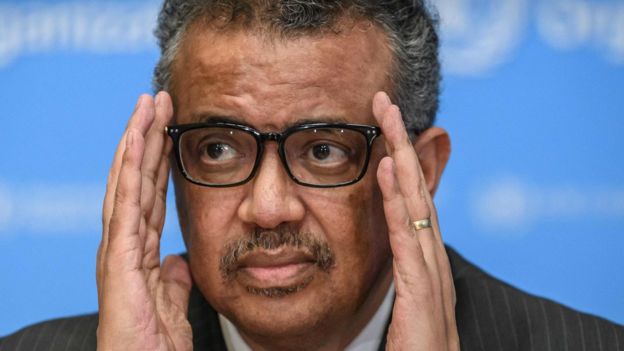The Ministry of health says it will administer the AstraZeneca vaccine eight weeks apart despite studies showing that administering the vaccine 12 weeks apart leads to higher efficacy of the vaccines.
According to a study published in the medical journal, the Lancet that took place in the UK people who got the first and second vaccine three months apart or longer had better efficacy. The findings show they had an efficacy of 81 percent compared to 55 percent for those who got at a six or eight-week interval.

Uganda has ordered for 18 million doses of the vaccine from both the COVAX facility the Serum Institute of India. According to the health ministry, they will administer the vaccines eight weeks apart as is recommended by the World Health Organization.
Dr. Alfred Driwale, the programme manager of the Uganda National Expanded Programme on Immunization says the country will follow WHO recommendations and those of the manufacturer.
“We are aware of the study but the WHO recommendation will be our basis. We shall administer the vaccine at eight weeks and not longer. That is what we have decided and are organising for,” says Dr. Driwale.
According to Dr. Driwale, the most important thing right now is that the country starts vaccinating people. The health ministry says they are in the process of developing a mobile application that will enable them to easily follow up with people and ensure they get a second dose of the vaccine.
In addition, all people receiving the vaccine will have to present their national ID and also avail information about how they can easily be contacted.
“We are setting up a system that will make it easy to carry out vaccination. We shall use national IDs to determine the age of the person and nationality. We shall also get their phone contact so that we call them to remind them to go for their second shot. This system will also enable us to follow up in case of any severe side effects being reported,” he said.
The UK was the first country that decided to extend the time interval between the first and second vaccine due to a shortage of vaccines. However, researchers of the study say the first dose of the AstraZeneca vaccine offers 76 percent protection for three months.
Professor Andrew Pollard, the principal investigator of the study at the University of Oxford, says due to limited vaccine supply, policymakers need to consider revising their policies to protect more people instead of following recommended timelines.
“Vaccine supply is likely to be limited, at least in the short term, and so policy-makers must decide how best to deliver doses to achieve the greatest public health benefit. Where there is a limited supply, policies of initially vaccinating more people with a single dose may provide greater immediate population protection than vaccinating half the number of people with two doses,” he said.
According to health experts, Uganda is at the back of the vaccine order line and might not be able to get its first batch of vaccines by the end of this month so that vaccination can start in March. When asked whether the delay will affect the vaccination process, Driwale said they will not.
“We are going to be very cautious. We shall vaccinate people according to the number of vaccines that we have. If we get 18 million vaccines, that means we shall only vaccinate nine million people since two doses are required. Once we are done with the 9 million, we shall move on to the net group,” he said.
The first persons who will receive the first doses of the vaccine in the country are people above the age of 50, teachers, security officers, persons with comorbidities and health workers.
-URN





